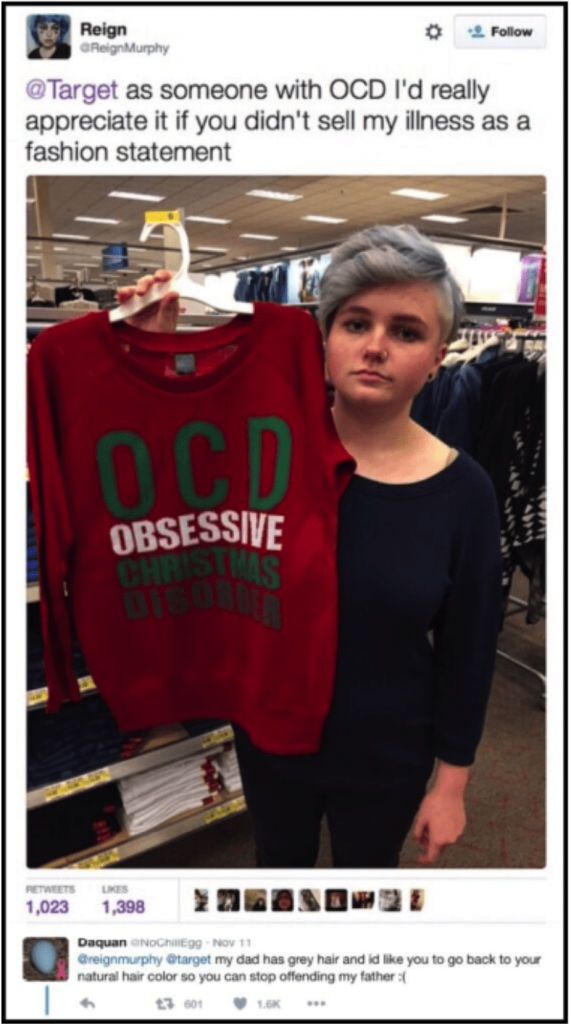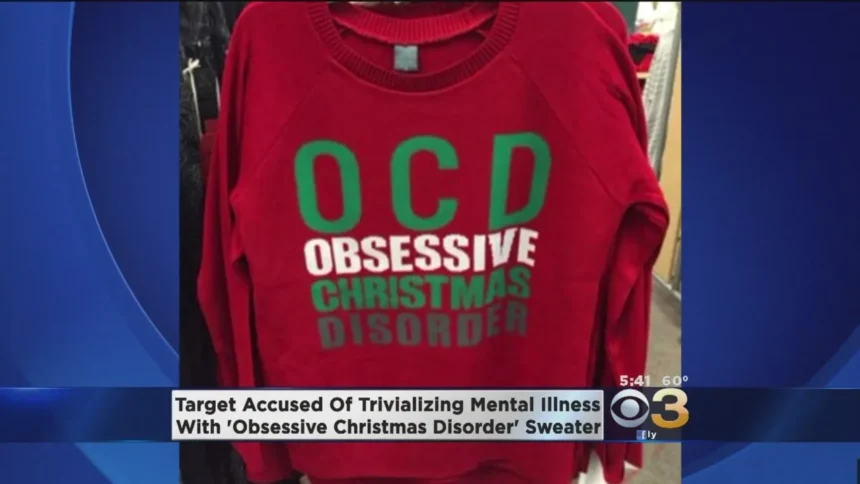In the dynamic terrain of sensitivities and perceptions, it is not unusual for seemingly benign items to give rise to controversy and discourse. This idea is demonstrated by a recent event at Target involving a red jumper, which begs the question of whether the offence committed was appropriate or if it was overstated.
Like any other day, Reign Murphy, a frequent customer of the store, went shopping at Target. Among the hundreds of objects, she noticed a bright red jumper. But as she lifted it up and looked at the text printed all over it, she was shocked. “OCD Obsessive Christmas Disorder,” a cheeky play on the abbreviation for obsessive-compulsive disorder, was plainly written on the jumper.
This psychological disease affects almost 2.2 million Americans, and Reign had been struggling with it. The message on the jumper offended her deeply. She believed that the term should not have been used so casually, as if it were a pun with a holiday theme. This felt, to her, to be making fun of a serious illness.
Reign took a picture of the jumper and posted it on Twitter to voice her worries and dissatisfaction. She had no idea that her tweet would go viral so rapidly, receiving a tone of shares and comments. Many people agreed with her assessment, considering the phrase on the jumper to be truly insulting. They thought it was bad manners to trivialize a mental health issue in this way.
Of course, there were many who disagreed, claiming that the message was not intended to be offensive or insulting. Though some of them may have experienced OCD themselves, they did not view the lighthearted pun as a slight to the severity of the illness.

Target representative Jessica Carlson apologized to anybody who were truly offended by the product in response to the escalating controversy. She did, however, also clarify that the store did not intend to stop selling the jumper.
Target has faced criticism in the past for the sentiments it conveys through its merchandise, not only in this instance. Another woman had already voiced concerns about designs that she found offensive. Some people felt that these designs, which included names like “bride,” “trophy,” and “Mrs.,” reinforced negative assumptions about women and their worth.
The narrative serves as a helpful reminder of the careful balancing act that must be done between personal sensitivities and the message intended by a product. It calls into question what constitutes appropriate humor and what can unintentionally offend someone. These kinds of conversations will continue as long as our world is changing, encouraging us to consider the consequences of the words and decisions we make.





